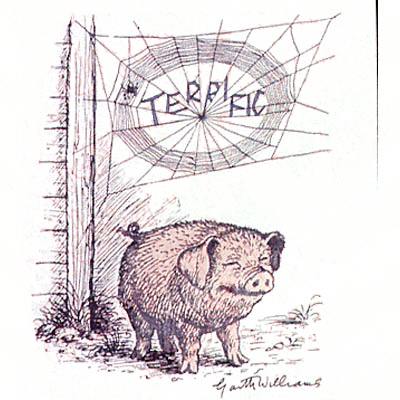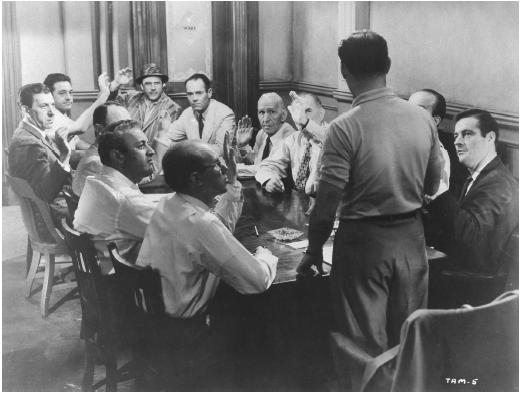The following is a statement from the GiveWell Board of Directors. Audio and materials from the meeting are located here. Additional materials related to this statement will be posted soon.
————-
The board has amended its original statement as of January 11, 2008 at 830pm est. Please note the addition of paragraph 5.
———————–
The Board of Directors wishes to emphasize that GiveWell was, is, and will remain committed to the goal of helping those in need by performing and publishing high quality research on charities within selected spheres for free and discretionary use by all interested parties. We are committed to the goals of improving philanthropy and increasing transparency in the sector by publicly sharing our process, our criteria, our methodologies, our deliberations, and our findings. Furthermore, we remain committed to engaging in public dialogue about how best to achieve these goals and encourage continued comment about our organization’s work.
The Board believes that the acts of misrepresentation that were committed are indefensible and are in direct conflict with the goals of the organization, and we condemn them in the strongest possible terms.
The board apologizes for any violations of public trust resulting from Mr. Karnofsky’s actions.
Effective January 3, 2008, Holden Karnofsky has been removed from his position as Executive Director of GiveWell and from his position as Board Secretary. The Executive Director position is now vacant; Tim Ogden will serve as interim Board Secretary. In addition to being removed from his positions, a financial penalty has been imposed on Mr. Karnofsky. While we are removing him from the Executive Director position, we believe that his previous contributions outside of the acts noted above have demonstrated a commitment to the goals of the organization and have been important to accomplishing GiveWell’s work. As a result, Holden will be moved to a Program Officer position, where we believe he will be valuable in helping GiveWell meet its outstanding commitments to applicants and donors. He will also participate in a program of professional development and mentoring.
In response to the actions by Elie Hassenfeld which were inconsistent with GiveWell’s core values of transparency and honesty, the board has decided to impose a financial penalty. We believe that Mr. Hassenfeld’s previous commitment to the goals of GiveWell demonstrates that he can continue to make a positive contribution to the work of the organization in the future in his current role as a program officer.
The GiveWell Board of Directors will begin meeting bi-weekly to develop and approve operating plans for GiveWell and to discuss the organization’s strategy and future. We will institute an organization-wide communications policy that will mandate that all staff and members of the Board of Directors explicitly disclose their affiliation with the organization when communicating with others. The policy will be made public once it has been completed.
We would also like to make clear to all donors to GiveWell since December 1 that we will contact them directly about these recent changes and will provide them the opportunity to have their gift returned if they so choose.
Signed,
Bob Elliott, Chairman
Greg Jensen, Treasurer
Tim Ogden, Interim Secretary
Lucy Bernholz
Virginia Ford
———–
In addition to the above statement from the Board of Directors as a whole, we would like to separately add the following about Holden’s actions, given our greater personal experience with him than other board members’.
We would like to make clear that the actions that Holden took to conceal his identity were improper and indefensible, as were his attempts to ameliorate the situation by offering a financial contribution.
While in this situation Holden acted improperly, we would like to emphasize that we believe Holden’s commitment to the GiveWell cause is genuine. Those who have commented that his involvement in GiveWell is an attempt to run a scam on the public or to gain financially are simply wrong. His substantial sacrifices financially and personally to take GiveWell from an idea to a reality demonstrate his passion for the values of the organization.
In addition, we would like to emphasize that we believe and have seen in action his stated commitment to the values of openness and honesty. While there are many incidents where Holden did not clearly identify his affiliation with the organization, we view these actions to be the result of his core mistake of thinking improperly about how to represent himself when communicating online.
In our previous professional and personal experiences with Holden, he has shown directness and honesty with those around him, and demanded the same from others. He has acknowledged weaknesses and worked with sincerity to improve those limitations. And, in the past when he has realized that his behavior or thinking was wrong, he not only been willing to change his mind and accept explicit personal responsibility, but take steps to ensure that similar action does not happen again.
It is clear to us that he has realized that his actions were improper, taken responsibility for his actions, and is committed to making sure that he communicates in a way that holds true to the values of honesty and transparency moving forward. We know Holden is committed to these values and expect that he will demonstrate to the community that this behavior was not consistent with his character through his continued work at GiveWell.
We recognize that people can make mistakes and that they can learn powerful lessons from those failures. When we think about the whole picture of Holden, and view his mistakes in the context of his contribution to GiveWell so far as well as his character prior to this project, we believe that he will continue to make a positive impact for the organization in the future.
Bob Elliott, Chairman
Greg Jensen, Treasurer

 Transparency is a really big deal to us because we believe that no matter how much we learn and no matter how hard we work, we can always be wrong. That’s why we invite as many people as possible into the conversation.
Transparency is a really big deal to us because we believe that no matter how much we learn and no matter how hard we work, we can always be wrong. That’s why we invite as many people as possible into the conversation. Measurement is about inviting someone else into the conversation: The Facts. The Facts have a lot to say, and they often contradict what we would have thought. That’s why we have to listen to them. Like transparency, measurement takes a lot of extra effort and expense; like transparency, it can’t solve all your problems by itself; and like transparency, it’s easily worth it if you agree that the issues are extremely complex, and that no matter how much sense something makes in your head, The Facts might disagree.
Measurement is about inviting someone else into the conversation: The Facts. The Facts have a lot to say, and they often contradict what we would have thought. That’s why we have to listen to them. Like transparency, measurement takes a lot of extra effort and expense; like transparency, it can’t solve all your problems by itself; and like transparency, it’s easily worth it if you agree that the issues are extremely complex, and that no matter how much sense something makes in your head, The Facts might disagree. To a lot of people, humility means speaking with a certain tone of voice, or just plain keeping your mouth shut. If that’s what you think humility is, we don’t have it. To us, humility is constantly saying “The things that make sense to me could be wrong – that’s why I’m going to do everything I can to test them, against others’ ideas and against reality.” Instead of being silently dissatisfied with charity, we’re loudly dissatisfied, so that anyone who disagrees can respond. Instead of happily assuming our dollars are doing good, we demand to see The Facts, so they can respond too.
To a lot of people, humility means speaking with a certain tone of voice, or just plain keeping your mouth shut. If that’s what you think humility is, we don’t have it. To us, humility is constantly saying “The things that make sense to me could be wrong – that’s why I’m going to do everything I can to test them, against others’ ideas and against reality.” Instead of being silently dissatisfied with charity, we’re loudly dissatisfied, so that anyone who disagrees can respond. Instead of happily assuming our dollars are doing good, we demand to see The Facts, so they can respond too.  Audio for last Monday’s board meeting is on the way; in the meantime, here’s a summary. The meeting ran about five hours and had heated arguments, tension, drama, a couple car chases, and down-to-the-wire votes. The highlight was the Elie and I ended up reversing our position on 2 of the 3 causes we voted on. Here’s the story.
Audio for last Monday’s board meeting is on the way; in the meantime, here’s a summary. The meeting ran about five hours and had heated arguments, tension, drama, a couple car chases, and down-to-the-wire votes. The highlight was the Elie and I ended up reversing our position on 2 of the 3 causes we voted on. Here’s the story. We recognized that donors are more likely to trust us for some decisions (comparing organizations with similar goals) than for others (for example, trying to compare the value of
We recognized that donors are more likely to trust us for some decisions (comparing organizations with similar goals) than for others (for example, trying to compare the value of